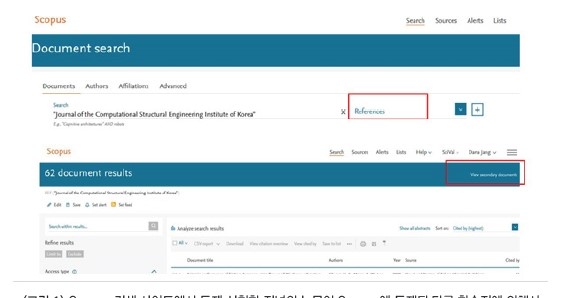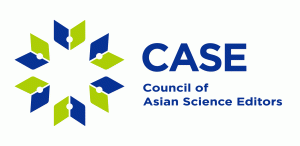Latest Review Trends and Selection Processes of Scopus
Prof. Bae Ho Park (Chair of Scopus ECSAC-Korea)
Academic papers are among the most often utilized by contemporary researchers to share their research findings and comprehend the most recent trends in studies on related subjects. The standing and reliability of academic journals are crucial because it is their job to perform basic checks, rigorous screening, and review of the data presented in academic papers, as well as their interpretations and claims. Because academic journals included in worldwide indexes such as Scopus have met their selection requirements, their standing and reliability have been somewhat confirmed. The worldwide index also generates regular statistics, allowing a more comprehensive understanding of the status and development of scholarly journals. Consequently, being indexed on the international index is one of the essential milestones in the development of academic publications.
As of October 2022, there are 407 Korean journals included in Scopus, including 157 journals in health sciences, 94 in life sciences, 164 in physical sciences, and 92 in social sciences. There are 26,591 academic journals listed in Scopus globally, including 7,753 in health sciences, 5,285 in life sciences, 9,304 in physical sciences, and 12,056 in social sciences. Regarding Korean journals, the field of physical sciences has the largest number of journals listed in Scopus, whereas the field of social sciences has the largest number of journals listed in Scopus globally. Seventy-five Korean journals were suggested for inclusion in Scopus between 2020 and October 2021; thirty-four of these journals, or 45% of the total, were accepted. Of the 3,008 academic journals that sought inclusion in 2020, 1, 324 (44 %) were accepted globally, and the acceptance rate of Korean journals was comparable to that of the global level.
Scopus has developed and is running a local Selection & Advisory Committee in countries where it is thought that, despite the existence of numerous academic organizations and journals, the proportion of journals listed in Scopus is very low. Along with Russia, China, and Thailand, Korea is one of the four nations that utilizes a local Selection & Advisory Committee in Scopus. Particularly in China, the number of Chinese academic publications that were newly accepted by Scopus in 2020 increased dramatically to 84 with the establishment of the Chinese Scopus Selection & Advisory Committee. Since the creation of the Scopus Selection & Advisory Committee in 2019, more than 65 new Russian journals have been included in Scopus every year. The Scopus Expert Content Selection & Advisory Committee-Korea (Scopus ECSAC-Korea) is responsible for reviewing Korean journals that have applied for inclusion in Scopus and submitting evaluation reports to the Scopus headquarters’ Content Selection & Advisory Board (CSAB). Additionally, it provides editors and managers of Korean journals with information and training on inclusion in Scopus, helping to raise the acceptance rate for Scopus and improve the standards of academic journals.
The Scopus team initially verifies the five prerequisites for inclusion: peer review, English abstracts, regular publishing, Roman script references, and publication ethics statements. They cannot proceed to the review process and are automatically disqualified if any of these fundamental standards is not satisfied. Academic journals are now frequently screened during the pre-selection process as their publication ethics statements do not adhere to the guidelines of Scopus. The degree of publication ethics policy intended by Scopus continues to strengthen as research integrity and publication ethics issues become more significant. The journal website’s presentation of the 16 Principles of Transparency & Best Practices items in English was carefully scrutinized. Proper preparation of these 16 items reinforces the research integrity of journals by making journals more transparent and aiding in the creation of processing policies. These 16 items must be correctly prepared by any academic journal that wishes to apply for inclusion in Scopus, as compliance with these 16 conditions must be confirmed. Regular publication is another factor preventing Korean journals from being considered. If the original scheduled regular publishing is not followed, or if the quantity of papers drops quickly, the journal is screened out because it is considered to not draw attention from academics in relevant fields.
Korean journals that have passed the basic standards check by the Scopus team will be pre-reviewed by the chair of Scopus ECSAC-Korea, and comprehensive reviews will be conducted by subject chairs in related fields. The level of the journal is thoroughly assessed in the chairman’s preliminary assessment, considering the journal’s fundamental requirements, including the quality of the website, international diversity of the editors and authors, quality of content, and citedness of articles. Subject chairs thoroughly review 14 items, including four items pertaining to journal policy, four pertaining to quality of content, two pertaining to journal standing, one pertaining to regularity, and three pertaining to online accessibility. The members of the relevant field of the CSAB receive the findings of the review by Scopus ECSAC-Korea before combining them with their assessments to reach a decision.

<Figure 1> How to use the Scopus search portal to find the citedness of journal articles in Scopus.
Low citations regarding the standing of academic journals are among the most frequently observed comments for journals rejected by Scopus. In particular, it was pointed out that rejected journals had low citations in good journals indexed in Scopus. Academic journals preparing for inclusion in Scopus must check the statistics of citations, because this can be done on the Scopus search site. Figure 1 illustrates how to do this: choose “references” from the Scopus search page, type the name of the journal you wish to submit to, and click “see secondary papers” in the upper right corner. It is very difficult to obtain more than 10 citations per year in good journals indexed in Scopus because it is challenging to obtain citations from other journals listed in Scopus for Korean journals that are not listed. It is particularly challenging for other journals listed in Scopus to cite a regional Korean language journal. Therefore, Scopus ECSAC-Korea has claimed that CSAB should consider statistics in the Korea Citation Index (KCI) regarding suggested Korean journals. Scopus ECSAC-Korea offers KCI statistical data, particularly the impact factor of the journal, ranking in its category, and self-citation ratio to the CSAB to reflect the activity of the suggested journal in the local society.
The standing of editors, which is related to the stature of academic journals, is another argument for not accepting the suggested journals. Information on three representative editors, including the editor-in-chief and executive editors, who play significant roles in editing academic journals, must be submitted when applying for inclusion in Scopus. The journal will receive a low rating if the three representative editors of a journal have poor records of publications and citations. The journal will also receive a bad grade if the editor-in-chief is not one of the three representative editors because of his scientific record. Therefore, it is advantageous for representative editors, such as the editor-in-chief and executive editors of academic journals, to be composed of academics with a solid reputation and a high citation-rate.
Another reason for not accepting the suggested journals is the international diversity of editors and authors regarding academic journal policies and the associated aims and scope. Without a clear explanation of whether they are contributing as local or international journals in the Aims & Scope, a journal will obtain a poor rating if there is no international diversity among editors and authors. If a Korean journal publishes articles that are primarily cited by other Korean journal papers without making it obvious in the Aims & Scope, the journal will receive a low grade. Instead, if it is made clear how the journal contributes to local society as an academic magazine, it can avoid negative evaluations even if the international diversity of the editor and author is weak or the articles are largely cited by Korean journals. Therefore, a journal will receive a good evaluation if the journal’s Aims & Scope, editors’ and authors’ international diversity, and the diversity of the journals citing the articles in the journal are closely related and operated.
Another justification for not accepting the suggested journals is the low-quality peer review process associated with the policies of academic journals. If it turns out that peer review was improperly carried out, they will receive a low evaluation. Negative evaluation can also result from, for instance, a too-short time frame to review, re-submit, and make a decision on a manuscript. Editors must consistently work to uphold the objectivity and thoroughness of the peer-review procedures. It is important to retain the same level of thoroughness in peer reviews for special-issue papers, invited papers, and rapid-submission manuscripts.
Another factor in the decline of the suggested journals is online availability, which includes content available online, English-language journal homepages, and the quality of homepages. If the webpage lacks essential details that should be provided to the author, reader, or reviewer, it will be given a poor rating. The types and quantities of information that the site should contain expand as the transparency of academic publications is gradually stressed. To make the homepage more convenient to use online, journals must comply with the 16 Principles of Transparency & Best Practices connected to research ethics. Additionally, a negative evaluation will be given if a journal’s homepage is not easily accessible or if the information about the journal is scattered across multiple websites. It is essential to systematically arrange and compile important data from a journal on a user-friendly website.Excellent journals are trustworthy publications where specialists in related societies may exchange research findings and talk about academic progress.
Excellent journals should meet several requirements; however, these requirements are becoming more difficult to meet. Being included in a global index such as Scopus is one of the finest ways to be acknowledged as a top-notch academic publication that satisfies fundamental standards. The inclusion of Korean journals in international indices requires a variety of assistance and efforts, as it can be a shortcut to the development of academic journals. Academic institutions and the government are actively working together to define the goal number of Chinese journals that are added to Scopus each year as part of China’s government-level support for the inclusion of Chinese journals in international indices. Korea has many active academic institutions and publications; therefore, raising the caliber of Korean journals through international index listings requires considerable attention and effort. By promoting the active academic activities of associated scholars, raising the caliber of Korean journals will not only improve the standing of linked academia, but also greatly enhance the competitiveness of the country’s science and technology sectors.
